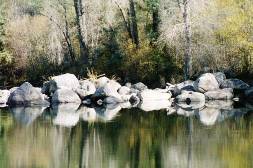 Trouble with me is that I'm always being criticised for not being critical enough. But I don't always want to be critical, because to find new ways forward you have to be open and interested in the possibilities, not busy shutting them down. In effect then critique can be too limiting. But then again some critiques do interest me because they can offer new ways of looking at the world I'm focused on.
Trouble with me is that I'm always being criticised for not being critical enough. But I don't always want to be critical, because to find new ways forward you have to be open and interested in the possibilities, not busy shutting them down. In effect then critique can be too limiting. But then again some critiques do interest me because they can offer new ways of looking at the world I'm focused on.What excited me about Gibson and Graham was their argument that academics can help foster new forms of economy by focusing on interesting things that are going on already and illuminating them for others to see. Their argument is that we often get stuck on seeing the bad, but we need to find ways to find and highlight the good.
This reminds me of a conversation that I had with Marie McEntee of Auckland Uni. today, who pointed out that Martin Luther King was looking forward to what could be when he said "I have a dream", whereas all we hear environmentalists talking about is "we have a nightmare". Its easier for people to respond to the positive than the negative. Its a bit like the idea that when you are driving or mountain biking, you need to look hard at where it is you want to go (the space!) and not to focus on that which you want to avoid (the lampost, or the steep bank below!).
What then are our dreams for a better economic system or a better environment or a better society?




